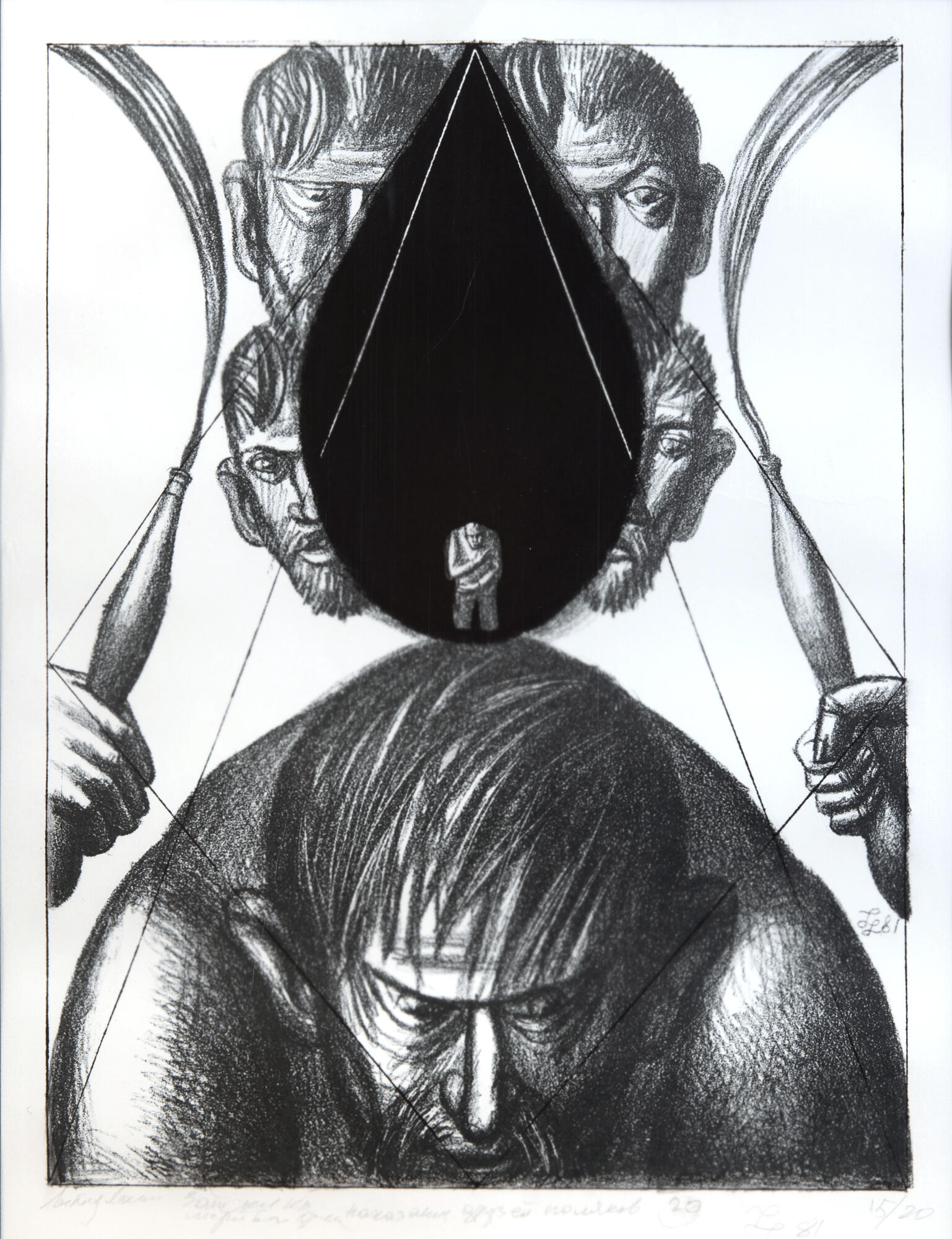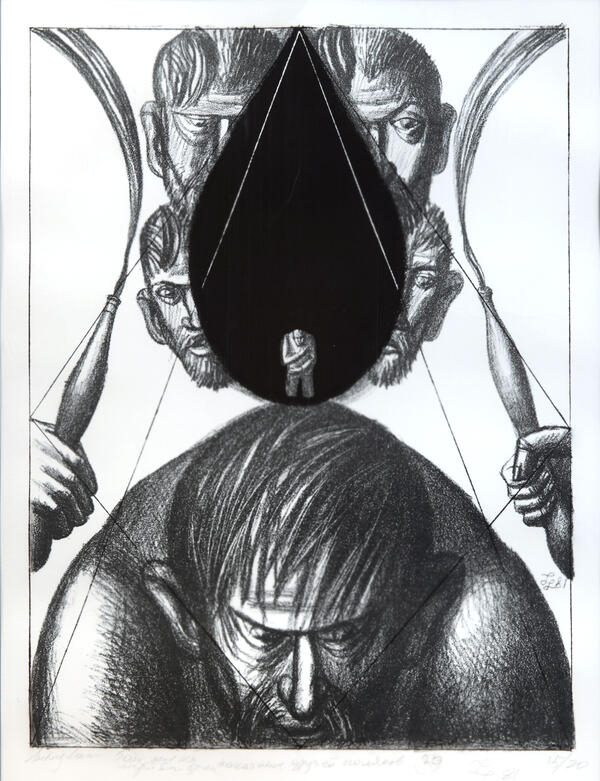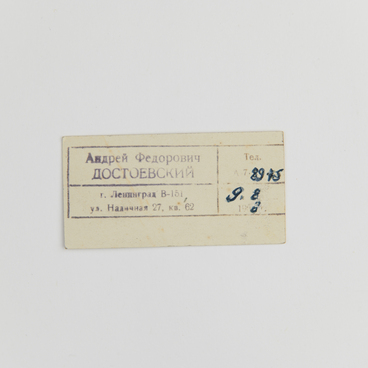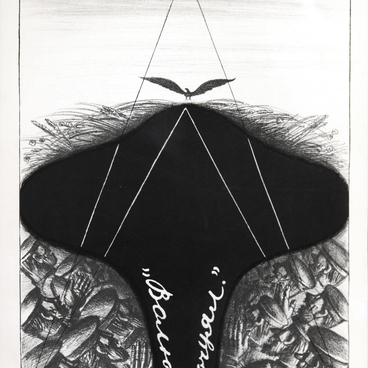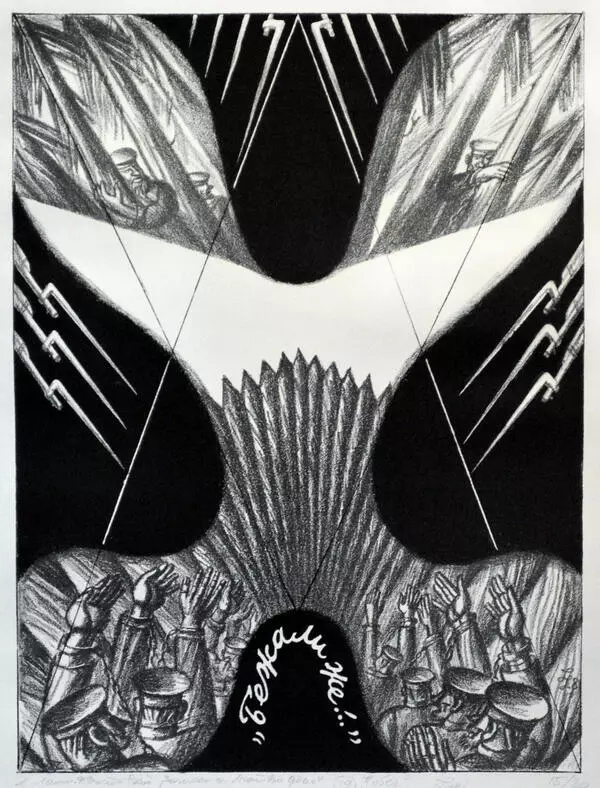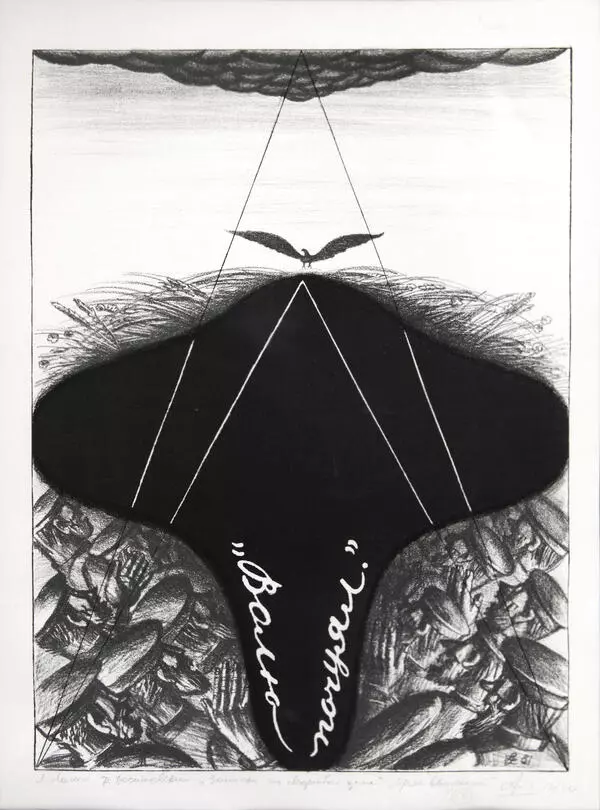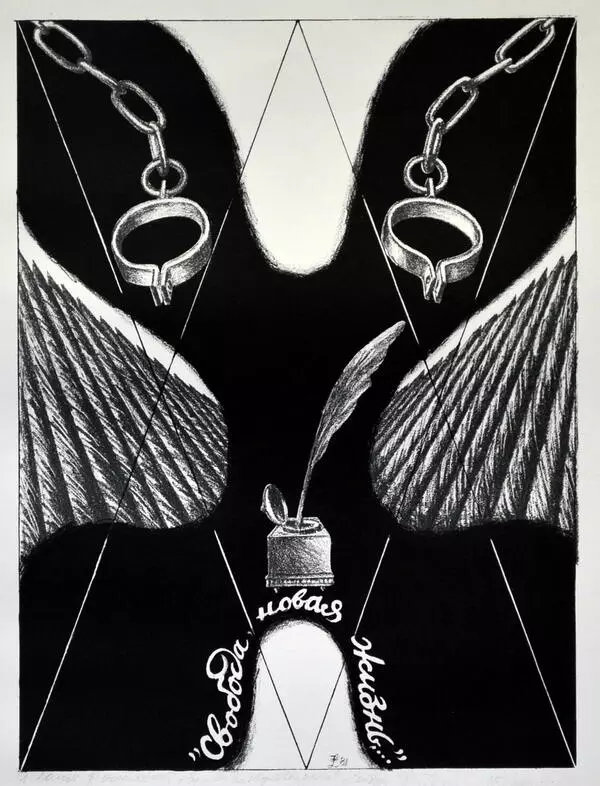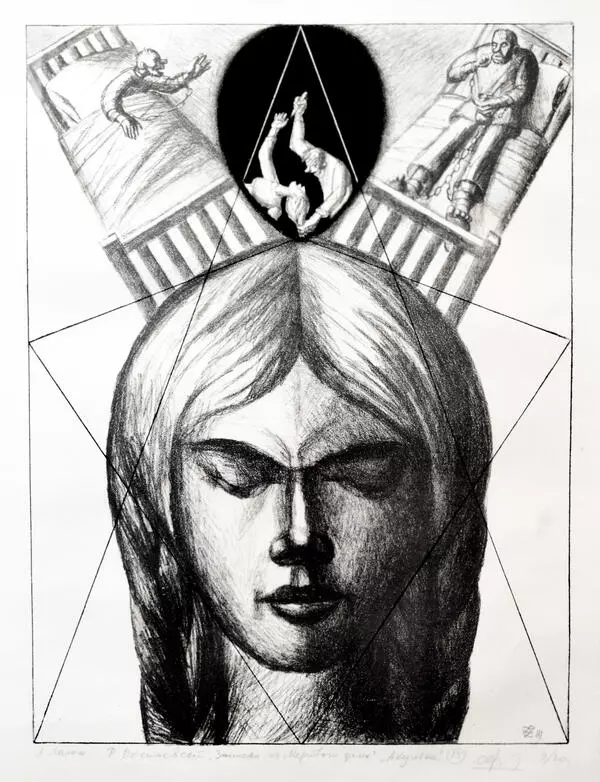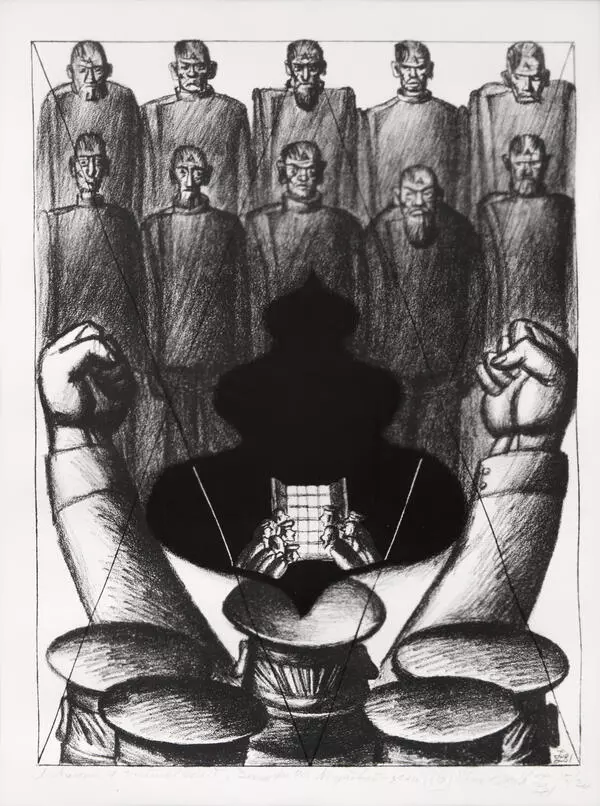Autolithograph by LeonId Lamm Punishment of Friends from the series of illustrations for the novel ‘Memoirs from the House of the Dead’.
Leonid Lamm was born in Moscow in 1928. He was a painter, graphic artist, member of the Artists' Union of the USSR. He attempted to immigrate from the country on ideological grounds. However, he failed and was arrested three weeks after the application. He was imprisoned between 1973 and 1976. Lamm moved to the USA in 1982. Lamm’s illustrations for the House of the Dead were inspired by his own imprisonment.
The main method of rehabilitating criminals in the prison was corporal punishment. They were beaten with rods, ramrods, and sticks. Many people died, unable to withstand the cruel execution. They could be punished for any misconduct or without any reason at all. This is how Józef Żochowski, professor of mathematics at the Warsaw University, was punished in the novel, “When they were brought afoot from Y—gorsk to our fortress, they were not shaved on the road at all, their hair and beards had grown to great lengths when they were brought before the Major. That worthy foamed like a madman; he was wild with indignation at such infraction of discipline, though it was none of their fault. “My God! did you ever see anything like it?” he roared; “they are vagabonds, brigands.” J—ski knew very little Russian, and fancied that he was asking them if they were brigands or vagabonds, so he answered: “We are political prisoners, not rogues and vagabonds.” “So-o-o! You mean impudence! Clod!” howled the Major. “To the guard-house with him; a hundred strokes of the rod at once, this instant, I say!” They gave the old man the punishment; he lay flat on the ground under the strokes without the slightest resistance, kept his hand in his teeth, and bore it all without a murmur, and without moving a muscle. B—ski and T—ski arrived at the jail as this was all going on, and M—ski was waiting for them at the principal gate, knowing that they were just coming in; he threw himself on their neck, although he had never seen them before. Utterly disgusted at the way the Major had received them, they told M—ski all about the cruel business that had just occurred. M—ski told me later that he was quite beside himself with rage when he heard it. “I could not contain myself for passion, ” he said, “I shook as though with ague. I waited for J—ski at the great gate, for he would come straight that way from the guard-house after his punishment. The gate was opened, and there I saw pass before me J—ski, his lips all white and trembling, his face pale as death; he did not look at a single person, and passed through the groups of convicts assembled in the court-yard—they knew a noble had just been subjected to punishment—went into the barrack, went straight to his place, and, without a word, dropped down on his knees for prayer. The prisoners were surprised and even affected. When I saw this old man with white hairs, who had left behind him at home a wife and children, kneeling and praying after that scandalous treatment, I rushed away from the barrack, and for a couple of hours felt as if I had gone stark, staring, raving mad, or blind drunk…. From that first moment the convicts were full of deference and consideration for J—ski; What particularly pleased them, was that he did not utter a cry when undergoing the punishment”.
